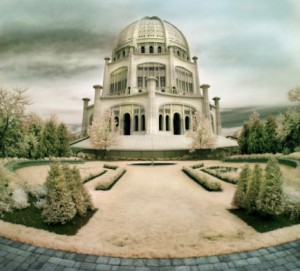 Some would consider the Baha’i religion to be somewhat interfaith in nature. This does not at all mean it shares the same approach as the Universal Life Church or the church of Unitarian Universalism.
Some would consider the Baha’i religion to be somewhat interfaith in nature. This does not at all mean it shares the same approach as the Universal Life Church or the church of Unitarian Universalism.
Born and developed in Iran and mostly confined to Persia and the Ottoman Empire in the mid-19th century, the Baha’i faith is relatively young compared to many of the world’s religions. With the core belief that nearly all of the world’s religions were divinely inspired by the same god, the Baha’i see the various theistic foundations as understandably needed by different cultures and times.
By the end of the 1800s, an early member named Mirza Husayn Ali Nuri took the title of Baha’u’llah and converted people from 13 countries throughout Africa and Asia, many of which were originally followers of Bab. However, much of Baha’u’llah’s religious life was spent exiled or imprisoned and was only allowed to have a home near ‘Akka near the end of his days until his death in 1892. After the Baha’u’llah’s death, the religion lived on through his eldest son, titled Abdu’l Baha –Servent of Baha–, and made its way through Europe and the Americas.
Though Baha’i is an interfaith religion at its roots, it is still fundamentally different from Unitarian Universalism or the Universal Life Church. Whereas these latter two teach that any religious path is acceptable as long as no one else is harmed during the theistic or philosophical journey, Baha’i nullifies the unique origins of past religions and lumps them together with Baha’i serving as the true iteration. It has specific rules derived from canonical texts that its believers are urged to respect. Along with obligatory daily prayer and an annual fast from March 2 until March 20, a number of actions are forbidden by the Baha’i faith:
- Gossip
- Gambling
- Fanaticism
- Partisan politics
- Alcohol and nonprescription drugs consumption
- Premarital, extramarital and homosexual intercourse
Additionally, by following the tenet that there is one true god with multiple messengers from various places and periods, the Baha’i faith still has a core set of theistic beliefs surrounding genesis and afterlife. Nevertheless, the Universal Life Church and Baha’i share an ultimate goal of world peace and both have a strong emphasis on worldwide equality and justice.




